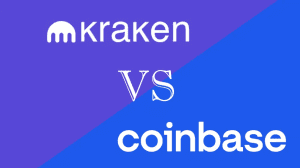What Are Altcoins? Easy Guide To Bitcoin Alternatives

Cryptocurrencies are becoming an increasingly popular way to invest, trade, and make transactions. Bitcoin is the most popular cryptocurrency, but there are many others called altcoins. In this article, we will explain what altcoins are, their types, their pros and cons, and their future in simple English – no technical jargon.
Altcoins Explained in Brief
Here are the main talking points:
- Altcoins are cryptocurrency alternatives to Bitcoin.
- They are created by changing Bitcoin’s code or developing a new blockchain.
- Some of these tokens use Proof-of-Stake (PoS) technology, such as Ethereum.
- There are several types of altcoins, including stablecoins and payment coins.
- Some tokens have more advanced and innovative features than Bitcoin.
What are Altcoins?
Altcoins are alternative cryptocurrencies to Bitcoin. They are often created by changing the original Bitcoin code or building a new blockchain from scratch. Altcoins have many uses, including payments, utility tokens, and investment vehicles.
One of the significant differences between Bitcoin and altcoins is the technology behind them. Bitcoin is based on a Proof-of-Work (PoW) consensus algorithm, while some altcoins use different consensus mechanisms like Proof-of-Stake (PoS) or delegated Proof-of-Stake (DPoS). This means that altcoins can offer other features and capabilities from Bitcoin, making them unique and attractive to investors.
Types of Altcoins
There are many types of altcoins, but the most popular ones are:
Stablecoins
Stablecoins are a type of altcoin designed to maintain a stable value against a particular asset or currency. Unlike other cryptocurrencies that can experience significant price fluctuations, stablecoins aim to offer stability and predictability. Some popular cryptos include Tether (USDT), USD Coin (USDC), and Dai (DAI).
They are often used as a bridge between traditional finance and cryptocurrency, allowing users to access the benefits of cryptocurrencies while minimizing price volatility.
Privacy Coins
Privacy coins are a type of altcoin that offers enhanced privacy and anonymity compared to other cryptocurrencies. These coins aim to protect user privacy and make it difficult to track transactions. Some popular coins include Monero (XMR), Zcash (ZEC), and Dash (DASH).
Privacy coins are popular among individuals who want to keep their financial transactions private, including activists, journalists, and those living under oppressive regimes.
Utility Tokens
Utility tokens give you access to a specific service or product on a blockchain-based platform. They can represent anything from access to a decentralized application (dApp) to voting rights within a community. Some popular tokens include Basic Attention Token (BAT), Chainlink (LINK), and Uniswap (UNI).
Developers mostly use utility tokens to incentivize user adoption of their platform or provide access to specific features within a community.
Payment Coins
Payment coins’ role is to facilitate payments and transactions. They aim to offer faster and cheaper transactions than traditional payment methods, such as credit cards or bank transfers. Some popular payment coins include Litecoin (LTC), Ripple (XRP), and Bitcoin Cash (BCH).
Individuals and businesses often use payment coins for cross-border payments, micropayments, and as an alternative to traditional payment methods.

Altcoins Pros And Cons
Altcoins offer users a range of benefits and drawbacks compared to Bitcoin, the original cryptocurrency. Here are some of them:
PROS
- Portfolio diversification
- Potential for higher returns
- Innovative features
- Improved scalability
- Enhanced privacy and security
- Faster transaction times
- Lower entry barriers
CONS
- Riskier than Bitcoin
- Lower liquidity
- Increased complexity
- Potential for scams
Future of Altcoins
The future of altcoins is uncertain, but many believe they will continue growing and gaining popularity. As more people become interested in cryptocurrencies, these cryptos may offer new and innovative features that Bitcoin cannot. However, not all of them will succeed, and investing in them carries risks.
Wider Adoption
One of the main factors driving altcoins’ progress is their potential to address specific needs and use cases that Bitcoin may be unable to. As more individuals and businesses look to integrate cryptocurrencies into their operations, altcoins that offer unique features and capabilities will become increasingly popular.
Increased Regulation
As the cryptocurrency market continues to grow, regulators are likely to increase their focus on it, which could lead to increased regulation of altcoins, including stricter KYC (Know Your Customer) and AML (Anti-Money Laundering) requirements. And while this could help increase trust and legitimacy in the market, it could also limit the growth and adoption of certain tokens.
Greater Integration with Traditional Finance
Integration between traditional finance and the cryptocurrency market continues to rise as cryptos become more mainstream. That includes creating new financial products, such as cryptocurrency ETFs (Exchange Traded Funds), and integrating cryptocurrencies into existing financial systems and infrastructure.
Emergence of New Use Cases
As more individuals and businesses explore the potential of blockchain technology, we could see the emergence of new use cases for altcoins. This could include using them for micropayments, peer-to-peer lending, and decentralized marketplaces.
More Competition
The crypto market has skyrocketed in recent years, so we should expect additional competition between altcoins. This could lead to the consolidation of the market, with only a few dominant tokens remaining, or it could lead to a more diverse market with a range of cryptos serving different niches and use cases.
Top 10 Altcoins to Bitcoin
While Bitcoin continues to dominate the cryptocurrency market, many investors and traders are also looking to altcoins for potential growth and investment opportunities. Here are the top 10 coins to watch in 2023.
- Ethereum (ETH)
- Binance Coin (BNB)
- Cardano (ADA)
- Ripple (XRP)
- Dogecoin (DOGE)
- Polkadot (DOT)
- Solana (SOL)
- Avalanche (AVAX)
- Terra (LUNA)
- Polygon (MATIC)
Frequently Asked Questions
Get more information about Altcoins.
What is the difference between Bitcoin and altcoins?
Bitcoin is the first and most popular cryptocurrency, while altcoins are alternative cryptocurrencies to Bitcoin.
How do I buy altcoins?
You can buy altcoins on cryptocurrency exchanges or through peer-to-peer marketplaces.
Are altcoins safe to invest in?
Altcoins can be riskier than Bitcoin, so it’s essential to do thorough research before investing.
Can I mine altcoins?
Yes, many altcoins can be mined, but the mining process may differ from Bitcoin’s.
Will altcoins replace Bitcoin?
It’s unlikely that altcoins will replace Bitcoin, but they may offer new and innovative features that Bitcoin cannot.
Concluding The Altcoin Guide
Altcoins are alternative cryptocurrencies to Bitcoin that can offer diversification, potential for high returns, and innovation. But they also come with risks, such as high volatility and the potential for scams. Moreover, their is uncertain, but they may continue to grow and gain popularity as more people become interested in cryptocurrencies.
Therefore, it’s crucial you do extensive research before investing in any altcoin to understand its potential risks and rewards. The success of any token depends on its technology, adoption, and acceptance by the broader community.
Furthermore, Bitcoin is the most established and widely adopted cryptocurrency, and many investors see it as a safe and stable investment option. However, as the cryptocurrency market continues to evolve, altcoins may offer new and exciting opportunities for investors.
Overall, altcoins are a fascinating and dynamic part of the cryptocurrency world, offering new and innovative features that Bitcoin cannot. So whether you’re a seasoned investor or just starting, it’s worth exploring the world of altcoins to see if they’re right for you.
Crypto trading (trading in general, actually) is always a risky business because the industry is volatile. Therefore, make smart choices and don’t invest more than you can afford to lose.





